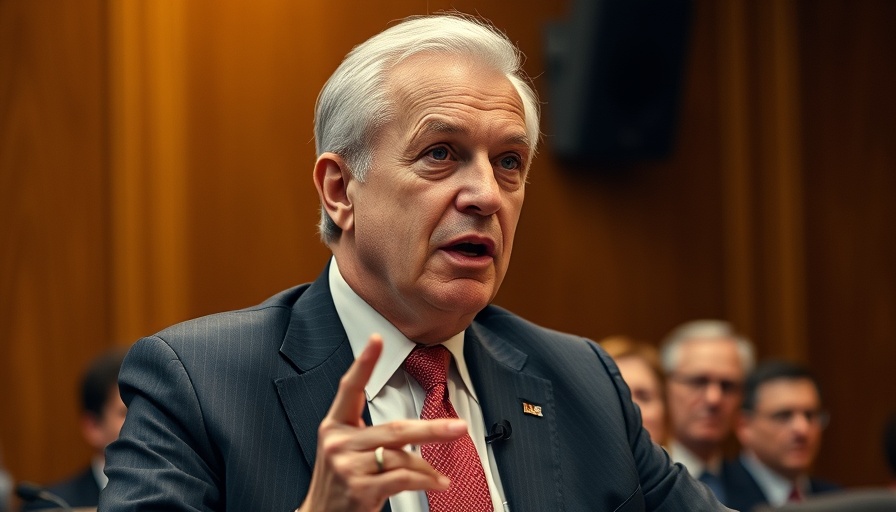
Understanding the Debate Surrounding Medicaid Cuts
Recently, discussions have intensified around proposed changes to Medicaid, highlighting a crucial intersection of politics and healthcare. HHS Secretary Robert F. Kennedy Jr. has vigorously defended the stance that Republican plans to reduce spending on the program are misrepresented as 'true cuts.' Instead, he argues these proposals target fraud, waste, and abuse within the system rather than the essential support for millions of Americans relying on Medicaid for their healthcare needs.
The Proposed Changes and Their Impacts
The Republican strategy seeks to implement stricter work requirements, linking eligibility to at least 80 hours of work, education, or volunteering each month. Additional eligibility checks and funding freezes threaten to cut services, impacting nearly 80 million individuals enrolled in Medicaid and the Children's Health Insurance Program (CHIP). Estimates suggest that up to 10.3 million may lose coverage by 2034, deepening challenges for individuals who are already vulnerable.
Claims of Fraud and Waste: Are They Substantiated?
Kennedy's assertion that the majority of Medicaid cuts focus on eliminating fraud raises eyebrows. The findings from the Department of Government Efficiency report that 2 million individuals are incorrectly enrolled in multiple states or in both Medicaid and Affordable Care Act programs point to significant issues. Yet, contrasting data from KFF indicates most Medicaid beneficiaries are working adults striving for better lives, complicating the portrayal of recipients as 'able-bodied' individuals avoiding work.
Community Voices: The Human Side of Medicaid
The ongoing dialogue surrounding Medicaid cuts extends beyond political rhetoric and statistics; it reverberates through communities. Voices like Rep. Josh Harder, D-Calif., emphasize that many Medicaid recipients are actively engaged in the workforce and depend on these vital services. Stripping away coverage will impose additional barriers to accessing necessary healthcare.
Future Predictions: What Lies Ahead for Medicaid?
As legislative debates continue, the future of Medicaid hangs in the balance. If implemented, the proposed changes could reshape how millions access healthcare. Advocates warn this could lead to a public health emergency, as those without insurance are more likely to defer necessary treatments, resulting in detrimental health outcomes and ultimately increasing costs for emergency care.
The Nuances of Naturopathy and Its Role in Community Health
In light of shifting healthcare strategies, alternative approaches like naturopathy are emerging as appealing options for many seeking optimal health and wellness. Naturopathic treatments focus on restoring healthy living through natural therapies, complementing conventional healthcare efforts. Communities are increasingly seeking out these alternatives to support sustainable health, particularly when faced with uncertainties in structured programs like Medicaid.
The Connection: Community Health and Wellness Initiatives
The discourse around Medicaid cuts also highlights the importance of robust community health and wellness initiatives. Local health and wellness centers provide crucial resources, enabling individuals to maintain their health despite financial barriers imposed by insurance changes. As the landscape continues to evolve, the emphasis must also be placed on fostering community support networks that promote wellness and preventive care.
Actionable Insights: Navigating Health and Wellness in Uncertain Times
As the situation surrounding Medicaid evolves, individuals should consider exploring comprehensive health and wellness options tailored to their needs. Engaging with community resources, such as wellness events and local health clinics, can help bridge gaps caused by insurance changes. Educating oneself about available services and alternatives can empower individuals to make informed choices that support their vitality.
 Add Row
Add Row  Add
Add 




 Add Row
Add Row  Add
Add 


Write A Comment